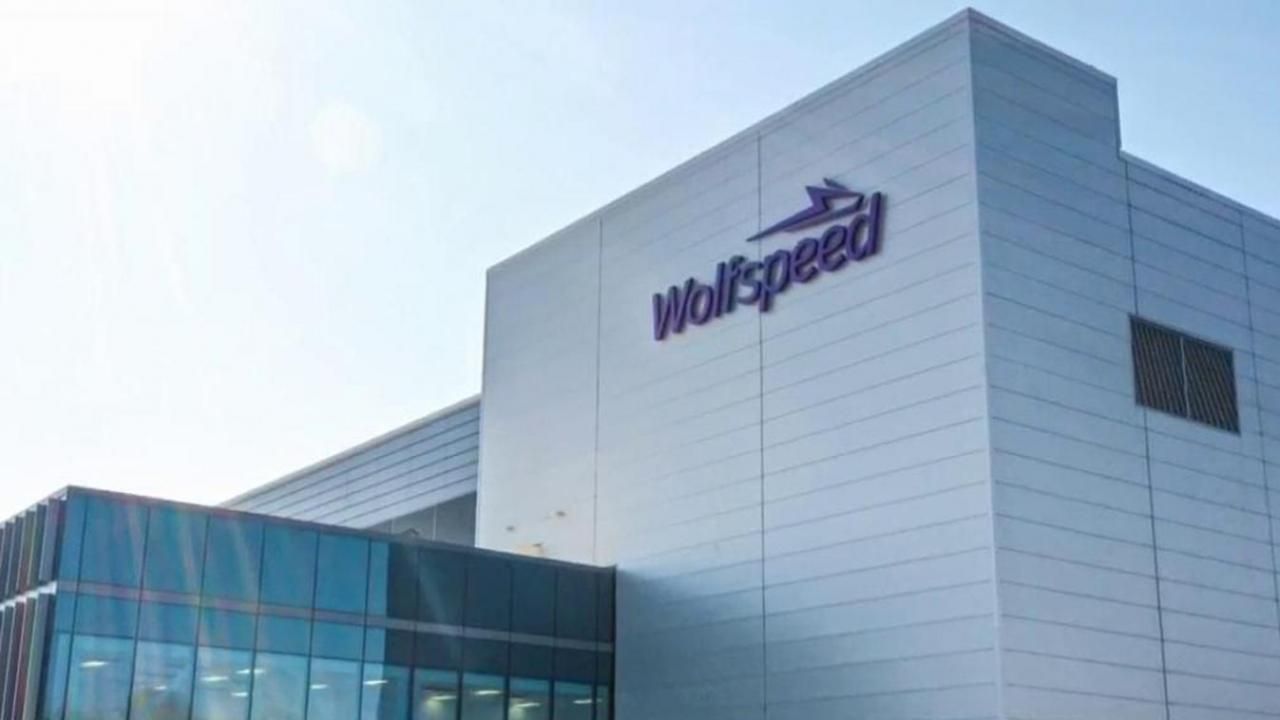Wolfspeed shares plunge on uncertainty over $1.75B in federal funding, tax incentives

Shares of chipmaker Wolfspeed plummeted in after-hours trading Thursday and continued to slide Friday in the wake of the Durham-based company’s announcement of a new chief executive and as questions loom over the fate of $1.75 billion in federal grants and tax incentives.
Shares of Wolfspeed were trading at $2.59 at the close of regular trading Friday on the New York Stock Exchange. That’s down about 56% from the close of regular trading on Wednesday. Wolfspeed said Thursday morning, ahead of the opening bell, that Robert Feurle would become CEO of Wolfspeed on May 1.
Wolfspeed, which is undergoing a challenging strategic shift amid slack demand for certain microchips, has been expecting up to $750 million in direct funding and $1 billion in tax credits under the federal CHIPS and Science Act.
The funding was pledged in October by the administration of former President Joe Biden, who signed the legislation to boost domestic research and manufacturing of semiconductors in the United States. The law was created as a hedge against supply chain issues and trade competition with China. The $1.75 billion in federal grants and incentives is in addition to another $750 million pledged by a private investment group.
President Donald Trump has expressed opposition to the 2022 semiconductor legislation. “Your CHIPS Act is a horrible, horrible thing,” Trump said during an address to Congress this month. “... You should get rid of the CHIPS Act, and whatever's left over, Mr. Speaker. You should use it to reduce debt, or any other reason you want to.”
During a call with the media Thursday, following the announcement of its new CEO, Wolfspeed executives said the funding agreement could change under the Trump administration but they didn’t provide details of how it might be altered.
“It's likely that the parameters of … the direct funding agreement with the CHIPS office are likely to evolve — some because the company has evolved, and because CHIPS office is different; there's a new administration who we are constructively engaged with,” said Thomas Werner, who served as executive chairman while the company looked for a replacement for former CEO Gregg Lowe, who was terminated in November.
If the grant agreements fall through, Wolfspeed has said the company could have a hard time maintaining its liquidity requirements and could face reputational damage. “There is uncertainty regarding the impact of the Trump administration's policies with respect to the semiconductor industry and government funding, tax credits and tariffs,” the company said in a quarterly financial report filed in January. Such a scenario “could have a material adverse effect on our business, results of operations or financial condition.”
Werner said Thursday the company is focused on improving operations, managing liabilities and access to capital, including funds from the CHIPS act and associated tax credits. He added that the company doesn’t want to be overly reliant on those funds.
Company executives have traveled to Washington in recent weeks to meet with lawmakers and others in the federal government. Tyler Gronbach, Wolfspeed’s vice president of external affairs, said Thursday that the company has support from several Republicans in Congress and executives have met with national security and trade officials. “We really think that there are definitely open ears in Washington on ways to help fund us,” Gronbach said.
Wolfspeed’s shares have plunged 91% in the past year as it has sought to navigate its transition to manufacturing high-powered silicone carbide chips aimed at improving the efficiency of machines and other devices. The S&P 500, an indicator of the broader stock market, has risen about 6% during the past year.
“Federal incentives may be in jeopardy given the Trump administration’s negative stance on the CHIPS Act,” analysts at Charter Equity Research said in a note to investors on Thursday. “We expect Wolfspeed’s challenged funding situation will keep the stock subdued, particularly considering the weak demand environment for [silicon carbide chips].”
While the company tries to weather soft demand, it is trying to cut costs and manage capital expenditures while it tries to strike a balance between winding down older manufacturing units in Durham while building up more efficient and more profitable facilities in Siler City and Mohawk Valley, New York.
In August, Wolfspeed said it was closing a chipmaking plant at its Durham campus. Wolfspeed said it would keep its corporate headquarters and two material manufacturing facilities in Durham while it moves ahead with its planned Chatham County factory. The company has said it expects to create 1,800 jobs there.
The Charter Equity analysts called Feurle a strong choice for CEO, pointing to his previous executive roles at other big semiconductor companies — including Infineon, where Feurle was part of a team that proposed to buy Wolfspeed. But they said the company could face short-term challenges boosting value beyond what it’s already doing.
“The problem for the company is that it doesn’t have many options to revive sentiment in the near term,” the Charter Equity analysts wrote.
“While Feurle could find some creative ways to stem Wolfspeed’s cash burn and ensure the company survives until demand for [silicon carbide chips] picks up,” they added, “the low hanging fruit (layoffs, restructuring, site closures) has been picked.”
WRAL News reporter Shaun Gallagher contributed to this report.
•Credits
Copyright 2025 by Capitol Broadcasting Company. All rights reserved. This material may not be published, broadcast, rewritten or redistributed.




